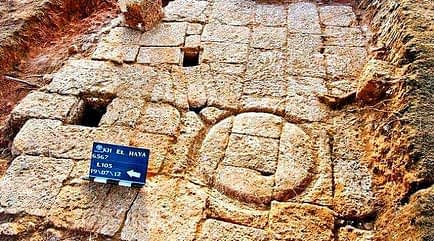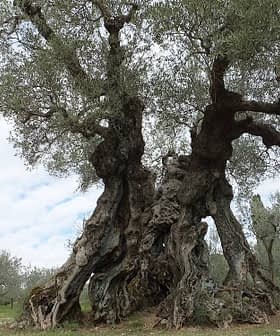The Israel Antiquities Authority (IAA) has unearthed a unique industrial olive press belonging to the Byzantine-Muslim era that existed between 6th and 8th century CE. The site was discovered during excavations in the Tel Aviv suburb of Hod Hasharon.
The excavators discovered a pressing floor for olives, trenches, cisterns that drained and stored fresh olive oil, and a piping system. Stone weights used for pressing olive sacks were also found beside the ruins. Amit Re’em, Central District Archaeologist with the IAA said that the olive oil factory was carved out of older building stones that were buried into the earth.
The Hod Hasharon olive press discovery is exceptional because usually such olive presses were hewn out of the living rock that was already in place. However, in this case, the soft earth required the construction of a solid foundation. Therefore, mason-worked blocks were used to build the press.
Durar Masarwa, the leader of the excavation team said: “We discovered the surface on which olive oil was extracted as well as a network of pipes, canals and holes that drained the liquid oil.” According to IAA experts, the size of the press suggests that it was meant for commercial production, and not personal use.
The municipality of Hod Hasharon is considering the possibility of establishing an archaeological park at the location in order to preserve this rare discovery for posterity.




